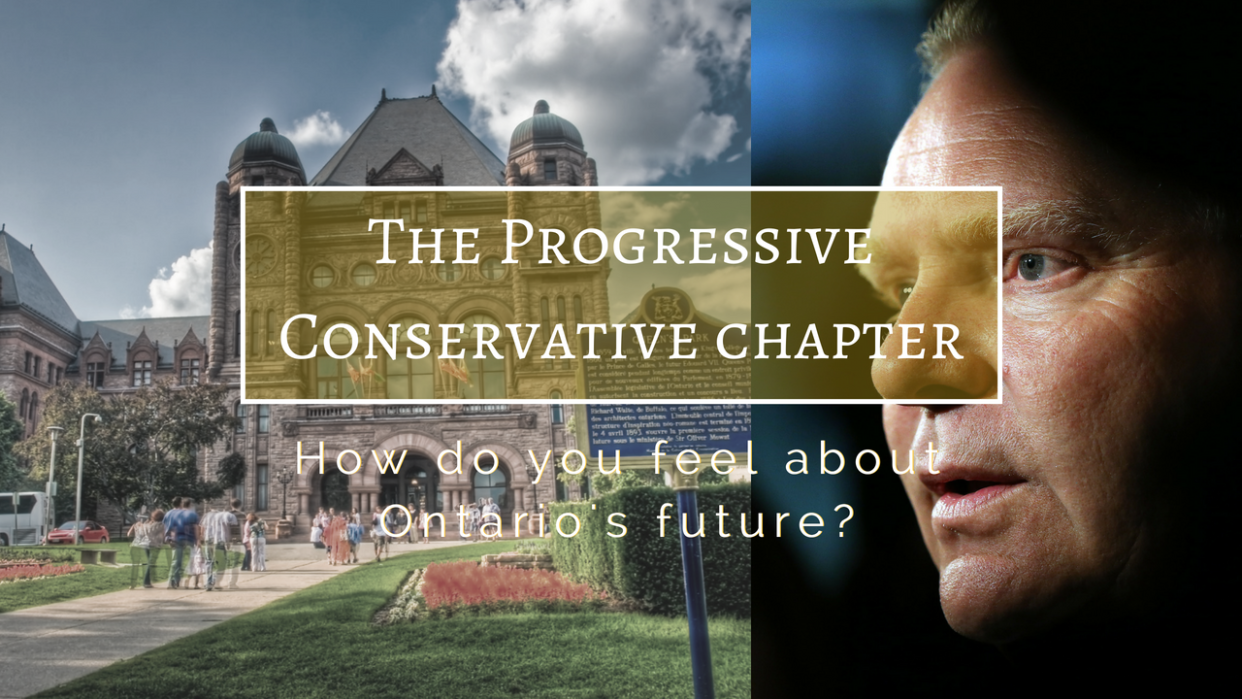Doug Ford could deliver on promises as Ontario premier, political expert says

For better or worse, Ontario’s government is heading in a dramatically different direction.
Doug Ford and the Progressive Conservatives scooped up 76 seats in the Ontario legislature on election night, winning a clear majority.
Voter turnout was the highest it’s been since the 1999 general election, which was also the last election won by Ontario’s PC party. An estimated 59 per cent of eligible voters made it to their polling stations. It was a sweeping success for Doug Ford and the Progressive Conservatives.
What remains now is to see how successfully Ontario’s new government delivers on its promises.
Those promises include, among other things:
Cutting hospital wait times and opening new long-term care beds
Reducing the cost of gas by 10 cents
Cutting $6 billion from the provincial budget without laying off any public employees
Cutting corporate tax rates to 10.5 per cent from 11.5 per cent
Scrapping the Liberals’ proposed $15 minimum wage
Allowing corner stores to sell beer, wine, cider and coolers
Don Guy, chief strategist at Pollara Strategic Insights and former veteran Liberal political campaign strategist, believes Ford and his government should be able to follow through with its plans. For better or worse.
“They’re simple, clear promises that are easily understood,” Guy said, “and therefore should be relatively easy to execute.”
The party was criticized leading up to the election for releasing its costed platform well after the other main parties and for neglecting to explain how it would pay for its promises.
During a campaign stop in Toronto, Kathleen Wynne called the plan incoherent. “All of the things that Doug Ford has said would add up to a $40-billion hole and they have no idea how they would find that,” Wynne said.
But Guy said it’s not alarming that a party wouldn’t disclose their complete fiscal plan before an election. The notion of fully costed platforms is a relatively new innovation in Ontario politics.
“It has not always been the norm that parties would do that,” Guy said. “In some ways, not doing that was a bit of a throwback to what the PCs used to do in their glory days.”
The truth, he said, is most likely that the new government’s professional public service will have monitored the party’s promises throughout the campaign and calculated the costing.
“In some respects, the Ministry of Finance is more qualified to quantify the cost of a given tax cut promise than the political folks,” he said.
Political folks are perfectly qualified to discuss the costs of tax cuts with the public, though, and eventually, Doug Ford will have to do just that.
Guy said Ford won’t be able to act on any of his party’s promises until after the first fiscal briefing with his core advisors, his transition team and his Secretary of Cabinet.
“Inevitably that first fiscal briefing is very sobering and I think they’ll have to organize themselves from there,” he said.
“They will have to come to grips very quickly with whatever the fiscal situation is that they’re inheriting and then start to figure out how to manage their promises against that context.”
Ford and his caucus have promised to create jobs and put more money in Ontarians’ pockets by lowering the cost of living.
Guy pointed out that while, Ontario unemployment rate in January was the lowest it’s been since July 2000, and its economy is showing modest growth, many people aren’t feeling the benefits of that growth.
“I think the extent to which that set of middle class and working class voters who are feeling an affordability crisis feel more confident about their prospects is key,” he said.
“The best-case scenario would be that he has a real impact on those two things, [economic growth and the employment rate] and they’re positive over the next four years for him as he heads into reelection.”
On the other hand, Ontario’s debt is approaching $312 billion and Guy said there’s a chance that, when creating their plan, the Tories underestimated the fiscal challenges they’d face as Ontario’s new government.
“Everyone’s waiting to hear what the actual fiscal situation is,” he said. “And if it’s far worse than he anticipated then in the short term that’ll be a challenge, but also, in the longer term.”
Therefore, Guy said, Ontarians will have a better idea of what the next four years will look like when the Tories release their first budget in autumn or next spring. For better or worse.
Are you concerned or confident about Ontario’s future under Doug Ford and the Progressive Conservatives? Let us know by answering the poll above or have your say in the comments below.


